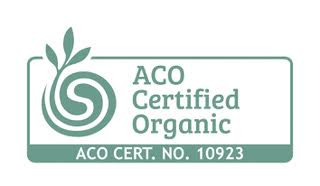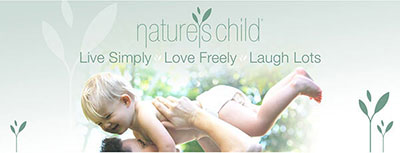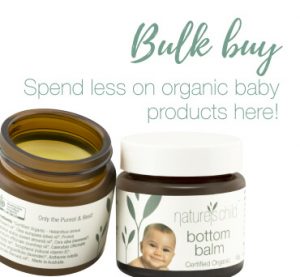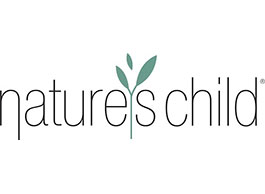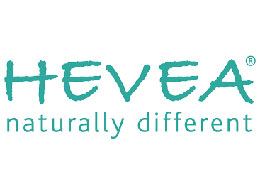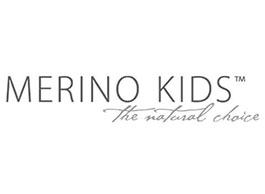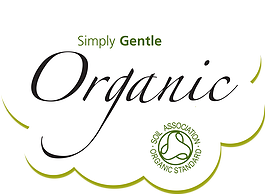From this perspective we see that the well-being of children sits at the root of every endeavour. Without happy, healthy children, we have no forest, no peace and no world. But children today are in trouble, which means our world is in trouble – our forests, our air, our safety, our children’s children are all in trouble.
Speaking about children’s issues always presents a challenge for me because not everyone here today is a mother and not everyone here finds themselves interested in the affairs of children or families. It can all seem a bit too sentimental for those who are outside children’s circles. But, it would probably be safe to say that everyone here is concerned about our world, our potential as whole and integrated beings, and the future of our human family. So I would like to speak about children and families but from the perspective of our shared concern – the concern about the future of this world. Tremendous responsibility lies in the arms of those who raise children.
We are not only responsible for our children, but for the kind of people they will be and therefore the kind of world we will have. As parents, we are the ones who are literally raising the future of our planet – a staggering idea if you really think about it. The initiatives of environmentalists, politicians, activists for social change, human rights and animal rights, though essential, are completely at the mercy of the kind of people we raise.
You’d think that with the prosperity and technological advances that we have in Australia in this century that our children would be the best off they’ve ever been. But something’s going dreadfully wrong. In the past 30 years, nearly every major indicator that measures our children’s health and well-being has actually become worse or stayed the same. The bottom line for this is quite simple. We, as individuals and as a nation, need to put children, mothers and fathers first. This means opening the borders of the nuclear structure, and letting ourselves into each others’ lives. Not just for the sake of the children, but for the sake of the planet. There is much evidence that putting children first now will pay off later. Canadian longitudinal studies have shown that the environment in which a child develops within its first two years impacts on the economic and health status of that person at age 35.
What do children need those first two years and beyond? A controversial but powerful body of research grounded in the fields of neuroscience, psychology, biology and genetics points us towards how bonding, intimate attachments with caregivers, dictates a child’s sense of his relationship with himself and his world. By bonding I mean the close, intimate, sensual, bodily connection communicated through the acts of breastfeeding, holding, sleeping with and touching which all stimulate the brain to create the neurological patterns associated with love. To the degree that this bonding is interrupted, for example through bottle-feeding or sleeping in a crib, a sense of fear, separation and violence is imprinted onto the developing brain.
Why this research is controversial is because things like breastfeeding don’t measure on the GDP. Putting your child in day care does. Intimate touch transmits to the human brain what it is to be human. Put simply, in the first two years – the brain is literally neurologically hardwired with the sense of love or fear, peace or violence depending on how a child is raised. Parents literally have in their hands the ability to create a violent culture or a peaceful one. From this we see that good parenting does not stop with mother, or even mother and father – it’s about a whole, inclusive, interactive community that works together to serve in the best interest of the children. Because for a mother to be able to appropriately bond with her child, she needs the support of not just the father, but everyone. And as the child grows older, he or she will need close intimate attachments with other members of his or her community. This is called multiple attachments.
Children need a whole army behind them, and a whole army behind those who care for them, to give them the sense of belonging and connectedness they need to feel loved. Carting them off to day care every day, feeding them on MacDonald’s, entertaining them with Disney and Nintendo and educating them with Microsoft, while we get on with our lives, isn’t going to do the job. And yet, that is exactly what we are doing. Please do not misunderstand me, I am not undervaluing the importance of teachers and day care workers. But their roles must not be confused with the sensually-intimate attachment role of the mother or father.
I read a startling statistic the other day: by the time an Australian child reaches kindy, he will have spent 2,500 hours in front of the television, more time than he would have spent with his father. Economic rationalisation has created a culture at odds with children, so much so that mothers, left literally holding the baby, have no choice but to put their children in increasing hours of day care and feed them with fast food just to survive. Increasingly alienated from each other, mothers and children are left to cope for themselves. Policy makers are trying to remedy the situation by calling for more day care centres and more accessible child care benefit schemes. But you see, initiatives like these are still economically driven agendas cloaked in maternal support. It is about moving more and more people into the workforce.
It has really nothing to do with what is best for the children. It has nothing to do with revisiting what it means to create a humane society. What is needed is something completely innovative, where work can integrate with community life, and roles cease to be polarised. Where intimate attachment, interdependency, and mutual support is valued as much as job security. I want to challenge this assumption that parents should bear the total responsibility for their own children. It is one of those assumptions that bares little resemblance to any truth whatsoever but because it is happening and unquestioned, it is confused with the truth. Since when does birth mean that the one who bears the child is the only one responsible? That assumption is leading ultimately to our downfall.
Unprotected, children are actually becoming fuel to the very forces we seek to change: materialism, separation and greed. Why? Because the economic and corporate influence is becoming greater than the human influence. And yet parents, especially mothers, take a lot of heat when our children begin to show symptoms of a society in crisis. We are blamed for school shootings, obesity, suicides, bullying and eating disorders. But who will take responsibility for the culture filled with violent media, corporate social manipulation, national leaders going to war, or skinny models in magazines?
Mothers who work are cast as materialistic and selfish. Fathers who work too hard are cast as unavailable and irresponsible. We blame ourselves as the economic treadmill pulls us farther and farther away from each other. I believe that most women who do not have to work but do so anyway, do it not for materialistic gain or equality, as we are told accusingly, we work so as to find community. As the neighbourhoods become increasingly sterile, the workplace becomes the only place where the need for belonging, contribution and socialisation can be met. You see, it is not about blaming mothers, blaming fathers, saying we are not willing to do the right thing by our children, or saying we are too selfish, materialistic or greedy. It is about seeing the effects economic globalism has on our ability to make wise choices, it is about, to put it simplistically, our milk travelling thousands of miles before it reaches the shops, driving up the prices, driving us to work harder to meet those prices. Not only does the current economic and corporate structure undermine our ability to create a supportive society but it also seeks to control the lives of our children. In less than 20 years, the number of global spanning corporations has jumped from 7 to 45,000.
Quite bluntly, they are currently raising our children.
They are exploiting their ability to find their way into every crevice of our children’s lives (schools, play, home) creating a new culture of materialism and life long consumers. They are creating a humanity who neither values itself nor has the intelligence to discern between what is real and what is marketed. Corporations spend millions to enlist the best child psychologists and researchers to wedge themselves between children and common decent human values. They practice what is called “cradle to grave” marketing. Clyde Miller says in his book the Process of Persuasion, “Think of what it can mean to your firm in profits if you can condition a million or 10 million children who will grow into adults trained to buy your products as soldiers who are trained to advance when they hear the trigger words, forward march!” James U. McNeal, former marketing professor at Texas A&M shamelessly states, “The consumer embryo begins to develop during the first year of existence”. The corporate giants, too, hit parents. 90% of our media is corporately owned, this means that the corporations determine what information we are allowed to know.
We are, therefore, not able to make fully informed choices about our children’s welfare. And because alternative choices, like breastfeeding, home birth etc do not measure on the GDP, they are undervalued in traditional media. Our lives, our children’s lives are being hijacked to serve economic interests! To survive, we simply must redefine what family means and open its borders to encompass each and every one of us, looking out for each other. Divided people are powerless people and the nuclear structure is the ultimate division. In order that we become open to the new paradigm, my sense is that we must allow ourselves to be deeply touched by our human family. We need to expose ourselves to real human experiences that reveal our divinity such as birth and death. We are very removed from these experiences that have profound impact on our interpretation of human life. These days the media interprets those experiences for us – it makes children cliche, childbirth medical, it makes humanity trivial.
It is no wonder we feel alienated from ourselves, it is no wonder that taking care of a child seems like a burden rather than a privilege. With so much power behind undermining the human family, we must band together, as men, as women, as parents and non-parents, and raise our children under one roof, inside one heart. I believe this is woman’s work, to challenge the current patriarchal structures and open the walls into something rounder! It is we who can hear the distress signals the children are sending, it is we who can feel in our very bones that it just cannot continue as it is, it is we who can empower our brothers to take a stand against that patriarchy, for men also suffer from that system. It is we who intuitively yearn for the return of community, where children and relationship are not held separate from economic life. This is the age where feminism matures into humanism. Where we no longer just take a stand for women’s rights, but we take a stand for human rights. Where gender no longer stands between us and our desire to serve the entire human family and restore it to the dignity that we understand and know to be true.
This article was titled “Divided We Fall” by Kali Wendorf
Bio: Kali Wendorf is a social change artist and the editor of byronchild and Kindred magazine. She is also editor of Stories of Belonging. You can follow more of Kali at http://kaliwendorf.blogspot.com/

